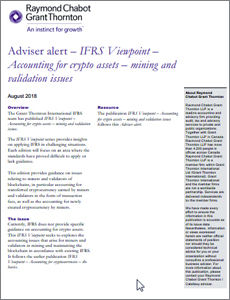Updated on April 24, 2023
How a manager communicates with employees plays a pivotal role in employee retention and engagement.
The word communication comes from the Latin communicare, to share. It’s important to remember that communicate and inform do not mean the same thing.
One message, two styles
To illustrate two very different communication styles, we can use the example of two diametrically opposite animals: a crocodile and an elephant.
You’ll recognize the crocodile in a supervisor who talks all the time and implements solutions without trying to understand what caused the situation in the first place. The crocodile’s jaws are much bigger than its ears, it talks a lot and doesn’t listen much. His sharp comments can be hurtful and if you go against him, he can bite back.
A supervisor who listens is more like the elephant. He asks open questions, seeks advice, restates messages and tries to understand a situation before acting. Like the elephant, he’s all ears. The employee feels valued and respected. The elephant is not afraid to acknowledge having made an error.
Listening first to communicate better after
In our management consulting practice, we sometimes come across crocodile-type supervisors, especially if they are new to the position and want to make their mark. Employees will certainly feel frustrated and disheartened (why should I speak up, he/she won’t listen to my idea?) and may even leave the organization to go somewhere where their skills and opinions are appreciated. Knowing someone is paying attention makes employees feel valued and doesn’t cost the organization anything.
When a person feels misunderstood, hearing someone else speaking loudly or too much may only make matters worse. In these cases, it’s best to have “an elephant in the room”. Being quiet and listening carefully—without thinking about your answer at the same time—promotes efficient communication.
Five tips for better communication
- Listen carefully to what’s being said, without distractions. If you don’t have the time, or you’re busy, say so or postpone the discussion.
- Pay attention to non-verbal communication, such as facial expressions or body language. The speaker doesn’t want to feel like prey facing a crocodile!
- Don’t start thinking about an answer while the other person is speaking.
- Repeat what the person has said in your own words to confirm your understanding. Use expressions such as “If I understood you correctly, you’re saying that …” or “From what I can see, you’re not comfortable with …”.
- Use psychometric tests to become aware of different behaviours. Our personality traits partly dictate our behaviours and attitudes. For example, someone extroverted in a position of authority and with strong leadership skills may tend to talk a lot and take over the conversation with employees and colleagues.
With work and practice, communication skills can be developed, just like any other ability. In today’s business world, they are key for any supervisor, regardless of the hierarchical level and will contribute to his or her success.
17 Sep 2018 | Written by :
Jean-François Boudreault is a RH expert at Raymond Chabot Grant Thornton.
See the profileYou could also like to read
Next article
Cities are changing and municipal managers will be facing numerous challenges in the coming years. It’s important to be ready.
Bill 122 is intended to give municipalities more autonomy. The law was assented to in June 2017 and recognizes municipalities as local governments.
One of its main objectives is to make each city more accountable towards its citizens in terms of its management models and decisions. To foster your city’s sustainability, you must first understand the challenges and then determine objectives to achieve your commitments.
Elected officials and their role
Over time, municipal roles and responsibilities have become more complex. The relationship between the Québec government and municipalities has been redefined and powers have been redistributed.
Recognized as an integral part of the Québec democratic system, municipalities must demonstrate they are involved in their main roles:
- Ensuring economic prosperity;
- Guaranteeing environmental responsibility;
- Supporting social cohesion;
- Ensuring efficient and effective management.
In each of these roles, the municipality must consider major factors.
Ensuring economic prosperity
When it comes to economic health, you have to be able to take an informed view of debt service to avoid having your entire action plan compromised by an interest rate increase.
The digital era and artificial intelligence are transforming ways of doing things. Whether it’s managing operations, internal and citizen communications or improved access to services for citizens, digital technology offers concrete improvement options for current systems.
Guaranteeing environmental responsibility
The environment has been a concern for many years. In a sustainable development context, a city must take account of ecological factors and adopt a coordinated approach. Climate change, greenhouse gas emissions, shoreline erosion are matters of concern that must be quickly contained. Municipalities must deploy collective efforts to reduce the environmental impact and achieve tangible results.
Supporting social cohesion
Changing demographics are having an impact on all municipal social strata. Citizens and tourists have diversified interests and needs. To better adapt to change, a plan to attract citizens and optimize services is essential.
Now, more than ever, people want to be involved in finding solutions and making decisions. It takes creativity to reach out to the population and promote participation.
Additionally, there is a labour shortage in Québec cities. Sooner or later, the impact will be significant. It’s important to develop immigration strategies, prepare successors and attract employees.
Ensuring efficient and effective management
One governance challenge that all municipal organizations will face at some time is the need to align the vision of elected officials with the administration’s capacity to implement that vision. Key success factors include a strategic reflection and a long-term action plan.
Additionally, sound governance must ensure transparency regarding budgets, the awarding of contacts and access to information.
In the face of these numerous issues, municipalities must capitalize on opportunities to transform for the benefit of their citizens.
In the coming weeks, members of Raymond Chabot Grant Thornton’s Management Consulting group will be publishing a series of articles with ideas to address these issues.
10 Sep 2018 | Written by :
Pierre Fortin is a partner at Raymond Chabot Grant Thornton. He is your expert in Management...
See the profileNext article
Adviser alert – August 2018
The Grant Thornton International IFRS team has published IFRS Viewpoint – Accounting for crypto assets – mining and validation issues.
The IFRS Viewpoint series provides insights on applying IFRS in challenging situations. Each edition will focus on an area where the standards have proved difficult to apply or lack guidance.
This edition provides guidance on issues relating to miners and validators of blockchains, in particular accounting for transferred cryptocurrency earned by miners and validators in the form of transaction fees, as well as the accounting for newly created cryptocurrency by miners.
The issue
Currently, IFRS does not provide specific guidance on accounting for crypto assets. This IFRS Viewpoint seeks to explores the accounting issues that arise for miners and validators in mining and maintaining the blockchain in accordance with existing IFRS. It follows the earlier publication IFRS Viewpoint – Accounting for cryptocurrencies – the basics.
Next article
Located in Thetford Mines, Quebec, RAD Technologies Inc. is one of the largest North American implement and application manufacturers. RAD Technologies Inc. is a leading manufacturer of implements and specialty applications serving OEM customers.
[French only]
29 Aug 2018 | Written by :
Guy Fauteux is a vice-president at Raymond Chabot Grant Thornton. Contact him today!
See the profile






